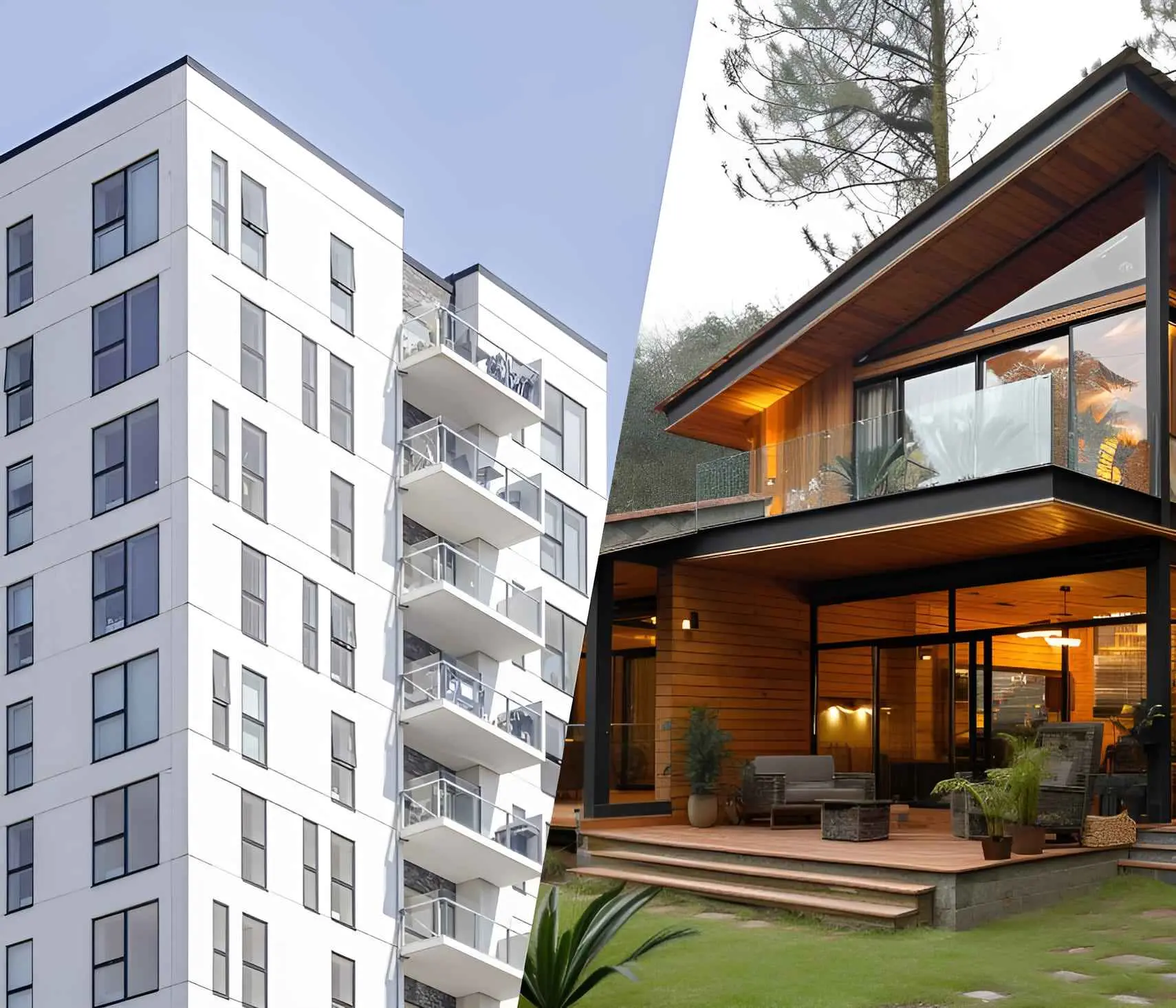A flat, also known as an apartment, is a unit within a larger building complex. Flats are often part of multi-story buildings and come with shared amenities such as elevators, parking areas, and recreational spaces. There are several advantages to living in a flat. Firstly, flats are generally more affordable than houses, making them a popular choice for first-time homebuyers or young professionals. They also offer a greater sense of security, particularly in gated communities where 24/7 security, CCTV surveillance, and controlled access are common features. Flats provide a convenient lifestyle with access to modern amenities such as gyms, swimming pools, and children’s play areas, while the maintenance burden is significantly reduced since shared spaces are managed by the building’s association or maintenance team. Additionally, flats are often located in prime areas within city centers or well-connected locations, offering easy access to work, schools, and other facilities.
On the other hand, a house is a standalone property, often with its own land. Houses offer several advantages, particularly in terms of space and privacy. Unlike flats, houses typically come with larger rooms, private gardens, and dedicated parking areas, making them ideal for families that require more living space. Homeowners also enjoy the freedom to customize every aspect of their house, from interiors to landscaping, without the constraints of shared property rules. Houses provide greater privacy, as they do not share walls with neighbors, and they also tend to appreciate in value more significantly over time, especially when land is involved. This makes houses a strong long-term investment. Furthermore, homeowners are not bound by community rules or restrictions, giving them complete control over their property.
When choosing between a flat and a house, there are several key factors to consider. Budget is a primary consideration, as flats are generally more budget-friendly, while houses require a larger initial investment and higher maintenance costs. Your lifestyle preferences also play an important role—flats are ideal for those seeking a vibrant community and modern amenities, whereas houses are better suited for individuals or families who value privacy, space, and independence. Future goals should also be taken into account. If you are focused on long-term investment, houses may offer better returns due to the appreciation of land value. However, flats can also be profitable, particularly in urban areas where demand for apartments is high. Lastly, location matters. Flats are more common in urban settings, offering easy access to city conveniences, while houses are typically found in suburban or rural areas, where larger plots of land are available.
In conclusion, choosing between a flat and a house depends on your personal preferences, financial situation, and long-term aspirations. Flats are perfect for those who prioritize convenience, security, and affordability, while houses cater to individuals seeking privacy, space, and full ownership control. Carefully weigh your options to ensure your choice aligns with your lifestyle and future goals.
